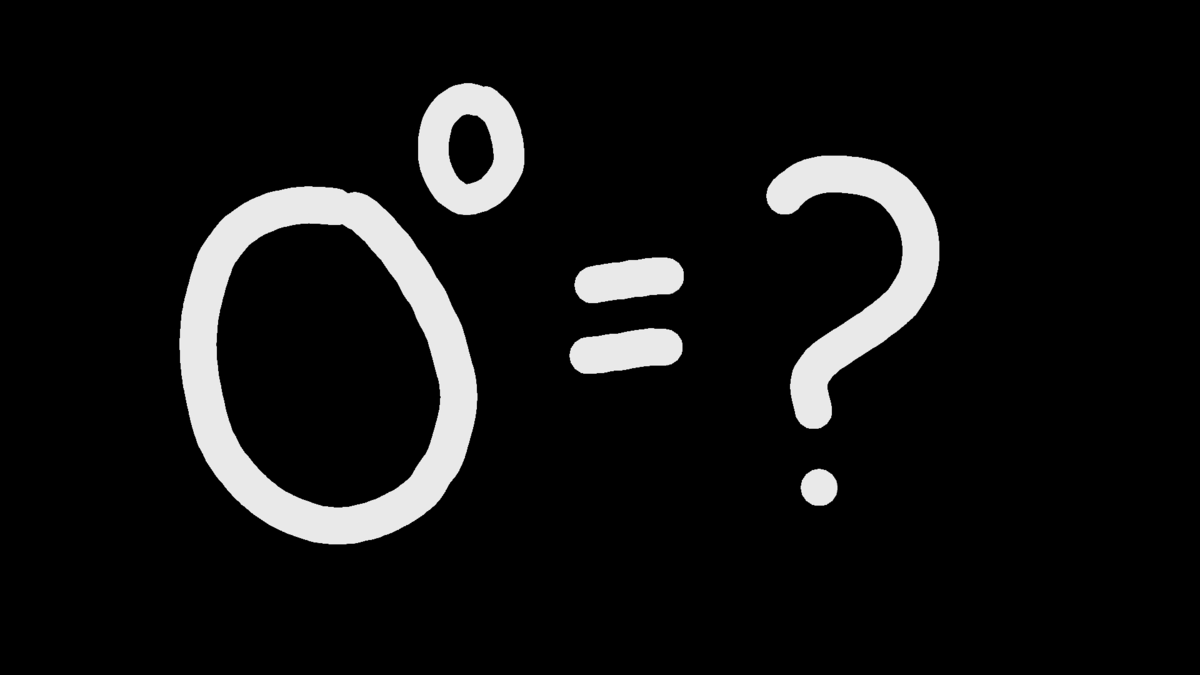Resolution Needed: 0^0=?

I've noticed that problems involving get a lot of reports and comments debating what the answer is. It seems that Brilliant members are divided into two sides: one saying it is indeterminate, the other saying it is .
I believe we need to come up with a collective agreement on what the value of is so that we avoid future chaos/confusion/conflicts. The purpose of this note is not to decide on the "right answer," but to decide how we can all compromise. What would be the best way to do this?
Please comment your opinion below. Thank you for reading this note!
No vote yet
1 vote
Easy Math Editor
This discussion board is a place to discuss our Daily Challenges and the math and science related to those challenges. Explanations are more than just a solution — they should explain the steps and thinking strategies that you used to obtain the solution. Comments should further the discussion of math and science.
When posting on Brilliant:
*italics*or_italics_**bold**or__bold__paragraph 1
paragraph 2
[example link](https://brilliant.org)> This is a quote# I indented these lines # 4 spaces, and now they show # up as a code block. print "hello world"\(...\)or\[...\]to ensure proper formatting.2 \times 32^{34}a_{i-1}\frac{2}{3}\sqrt{2}\sum_{i=1}^3\sin \theta\boxed{123}Comments
I think it is indeterminate, waiting for the staff to give the opinion!
@Calvin Lin Mr. Lin, I would like to ask for your opinion on how this debate can be settled for problems posted on Brilliant in the future. Thank you.
Log in to reply
I think we need to have a vote, I know some people do not have opinions, but maybe it would be okay for this to be done on a problem by problem basis. If a problem requires the solution of 0 to the 0 and they do not want it to be 1 or indeterminate(whichever we decide to make as the basis) they can state in the problem what the definition of 0 to the 0 is.
Well, many conventions defined 00 as 1.
If you search "0^0" in Google, the Google calculator tells me that it's 1. Of course, I can't completely trust Google's answer, but I think it's 1.
Again, this is NOT intended for discussing what the answer is. This is intended for discussing how we can all agree on an answer.
Log in to reply
Okay... we should vote!
Log in to reply
Ya!
Log in to reply
@Calvin Lin Is it possible to have a vote?
Log in to reply
I guess, he will allow it!
Well, Youtube sources say that it is undefined, including the numberphile. Further, it's proof has also been derived by calculus.
I think it should be 1
Indeterminate. For textbooks that consider real number arithmetic only, it is often convenient to just define 0^0=1 however.
Google says 1... But Wolfram Alpha says indefinite.